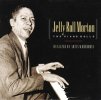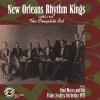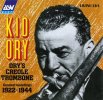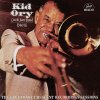Zeeba Neighba
Staff member
Inspired by Ojai's Capitol Series (as well as my thoughts there should always be a jazz thread running), wanted a thread centered around The Penguin Jazz Guide.
Long an essential resource among jazz fans, the Guide has not been updated since 2010, and there was a bit of consternation among fans with the decision then to redesign the exhaustive artist based guide with a chronological 1001 album overview guide. Though the Guide tried to cover a wide range of artists, it did this at the expense of several key albums. I bought the 2010 edition but tended to rely on the prior edition more.
Over the years though I've grown a fondness for the new edition as it does bring up albums and artists outside the usual canon, and it does provide a nice chronological perspective of jazz development covering each era exhaustively (the temptation is always to focus on the golden years of album-based jazz 1955-1965).
So, though an exhaustive journey, my intentions are to go chronologically shooting for an album/day to not burn out on jazz and to allow myself time for other genres.
But Zeeba, have you finished past series focused on Broadway or the Mojo Core Collection? Why do you counter my excitement with cold, depression facts
Long an essential resource among jazz fans, the Guide has not been updated since 2010, and there was a bit of consternation among fans with the decision then to redesign the exhaustive artist based guide with a chronological 1001 album overview guide. Though the Guide tried to cover a wide range of artists, it did this at the expense of several key albums. I bought the 2010 edition but tended to rely on the prior edition more.
Over the years though I've grown a fondness for the new edition as it does bring up albums and artists outside the usual canon, and it does provide a nice chronological perspective of jazz development covering each era exhaustively (the temptation is always to focus on the golden years of album-based jazz 1955-1965).
So, though an exhaustive journey, my intentions are to go chronologically shooting for an album/day to not burn out on jazz and to allow myself time for other genres.
But Zeeba, have you finished past series focused on Broadway or the Mojo Core Collection? Why do you counter my excitement with cold, depression facts


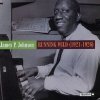
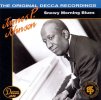
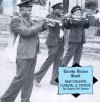
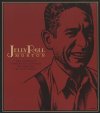

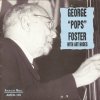
 Happy happy, joy joy!
Happy happy, joy joy! 
